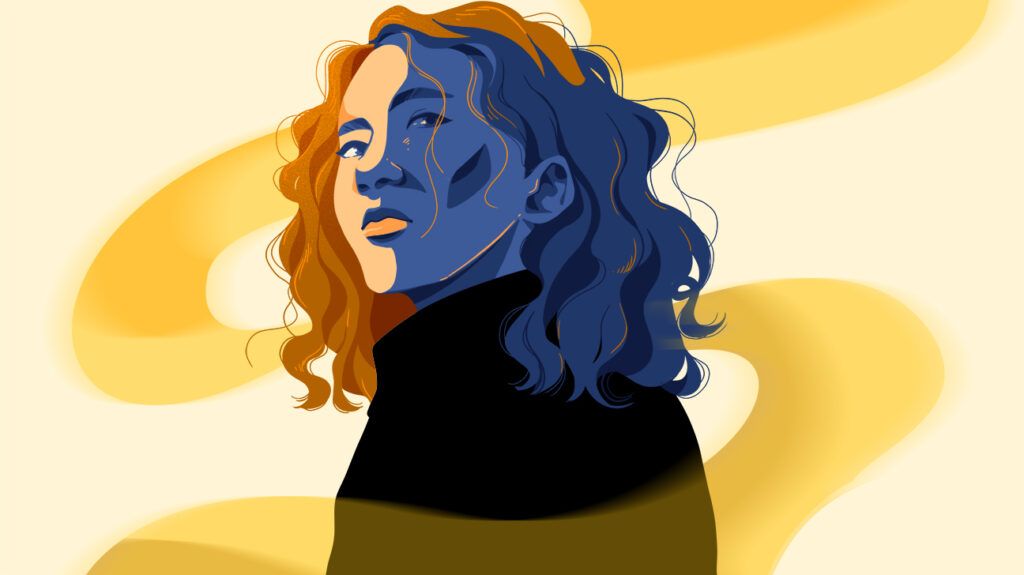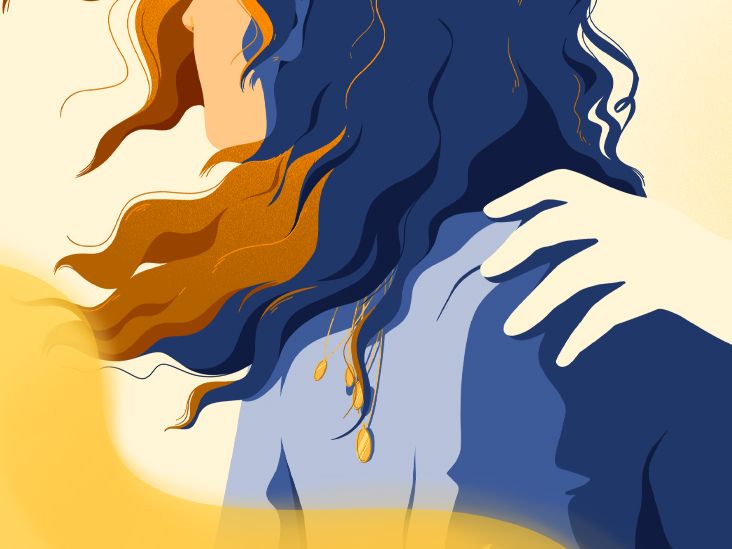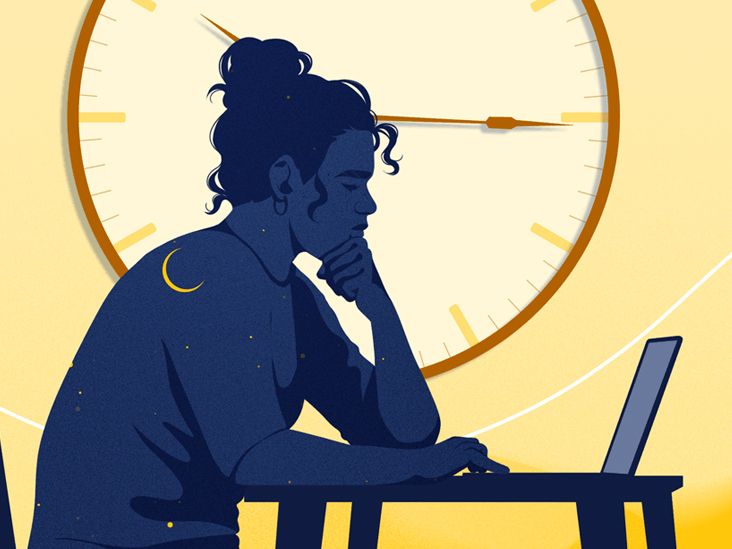
After I received my obsessive-compulsive disorder (OCD) diagnosis, I was relieved.
I finally had a name for the strange combination of anxiety, overthinking, and intrusive thoughts I’d been experiencing for years. I had a word I could Google; I could find a community of people who understood me.
I’d felt alone for years, unable to articulate my experience, and my OCD diagnosis gave me comfort.
But while it was a huge relief, I wasn’t prepared for the next hurdle in my recovery process: People didn’t believe I really had OCD.
Everyone from well-meaning friends to family members seemed to doubt I had OCD. “But you’re not obsessively neat,” one friend remarked. “Are you sure you have OCD? You’re not really that pedantic,” another said.
Most of these people would consider themselves open-minded. They’d create mental health awareness posts on social media. They didn’t use ableist terms like “psycho.” They meant well.
But they didn’t quite understand how damaging their words were.
Having nobody believe you is extremely distressing. It made me question my sanity, my symptoms, and even my therapist.
As someone who struggled with OCD symptoms for years, the last thing I needed was disbelief. And as much as I tried to shake it off and not take it personally, these comments sent me a few steps backward in my recovery.
OCD is an interesting disorder because most people have heard of it, but few actually understand it.
Many people believe they know what it is, but most really don’t. This widespread misunderstanding can be frustrating for those of us who have the condition.
Many people believe they know exactly how OCD looks from pop culture representations. They might associate it with germophobia or a fixation on order. While this can be how OCD shows up for some people, it’s certainly not true for all of us.
OCD is made up of two parts: obsessions and compulsions.
Obsessions are persistent, upsetting, intrusive thoughts that we fight to “turn off,” much to our distress.
Compulsions are actions we feel the need to take to “turn off” those thoughts, neutralize their harm, or reduce that distress.
Those compulsions can look like ordering your stationery in a specific way or washing your hands excessively. But they can also be less noticeable. For example, taking a specific number of steps when walking, reciting a mantra under your breath, or praying in silence.
Usually, the symptoms of OCD that other people see from a distance relate to compulsions. They’re tangible, visible actions.
But you can’t, however, see obsessions — those painful, disturbing thoughts and feelings that make us carry out our compulsions.
One of the reasons people seldom believe that I have OCD is because I’m not excessively neat.
On a spectrum of ultra-neat to messy, I think I’m in the center: I like order, but I’m fine with leaving my bed unmade — and I’m not a fan of washing dishes.
OCD doesn’t just show up as neatness. In fact, people with OCD can be messy, neat, or anything in between — just like people without OCD.
This is because the disorder isn’t always about order, symmetry, and cleanliness.
Our obsessions and compulsions can be related to a number of different things, often called “themes.”
Common OCD themes include:
- harm OCD, where your obsessive thoughts are about harming yourself or others
- religion or morality, often called scrupulosity
- relationship OCD, where you’re consumed with anxiety and doubt about your relationships with others
- counting OCD, where you count to a specific number
- contamination OCD, where your obsessive thoughts fixate on cleanliness, germs, and the possibility of falling sick
When it comes to an OCD diagnosis, the theme is not necessarily important. What’s important is that you have both obsessions and compulsions.
My OCD has nothing to do with contamination, cleanliness, or order — which is why my symptoms don’t look the way people think OCD looks like.
In fact, my OCD compulsions relate to other topics, for example, breathing techniques and the law of attraction.
My life with OCD doesn’t look the way media portrays my condition — but it’s still very, very real.
Doubt is a huge part of OCD.
Many people with OCD doubt: We doubt that we’re safe, we doubt that we won’t hurt those around us, we doubt that we’re truly loved by others, we doubt that we’re good people.
This doubt can be all-consuming.
What we don’t need is for other people to doubt our diagnosis.
After I shared my diagnosis with those around me, I was met with a lot of doubt.
And as much as I wanted to shake off these comments, it planted a seed of doubt in me.
- What if I don’t really have OCD?
- What if I’ve tricked my psychologist because I’m a bad person?
- What if I’m using it to cover up that I’m secretly evil?
- What if my compulsions are just quirks?
This added another level of doubt to my already fraught mental state.
The exhaustion and overthinking were extremely difficult to navigate. I found myself wanting to avoid therapy — I wanted to avoid getting help altogether.
Thanks to online forums, I learned that many people with OCD face the same thing as me: Others doubt their diagnosis. In turn, this discourages them from seeking help.
With a lot of self-reflection, I was able to power through this debilitating doubt and seek help. Since then, I’ve gotten much better, and my symptoms are far more manageable, thanks to therapy.
But many people don’t get this far. Many people with OCD don’t manage to overcome the pervasive stereotypes that hold them back from seeking help.
Many well-meaning people have stereotypical ideas about OCD. These stereotypes can be extremely harmful to people with the condition.
Even when these stereotypes don’t come from a place of judgment, they’re damaging.
These stereotypes include the beliefs that:
- all people with OCD are extremely clean and neat
- all people with OCD are high-strung
- being pedantic about neatness or cleanliness shows that you have OCD
- people with OCD cannot be disorganized
Just as someone with a generally optimistic approach to life can have major depression, a person with OCD can be messy. These personality traits don’t immunize you against mental illness.
If we, as a society, truly want to prioritize mental health, we need to let go of the stereotypes we hold.
We need to be willing to admit when we don’t know too much about certain mental illnesses, and we need to educate ourselves (beyond watching TikTok skits and “psycho killer” horrors).
If you’re a person with OCD and your loved ones doubt your diagnosis, remember that they’re not experts on what’s going on in your brain — you are.
And if you do fit the diagnosis criteria for OCD, as guided by your therapist, you can use that label if it helps you.
For many of us, the label of having OCD can be scary — but it can also be empowering.
This is particularly so if it helps to explain some of the challenges we face.
Doubt and disbelief can be extremely hurtful, but it’s possible to move past it and get the treatment you need.



